What if we viewed lived experience as an asset? As an asset of professional, economic,…
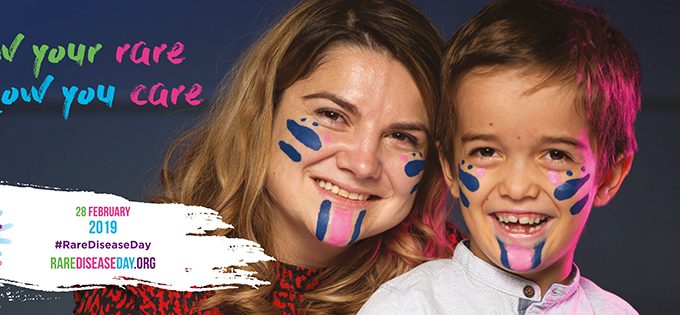
Rare Disease Day 2019 – What Rare Means For Me
Today is Rare Disease Day 2019, celebrating people living with, and raising awareness of rare diseases.
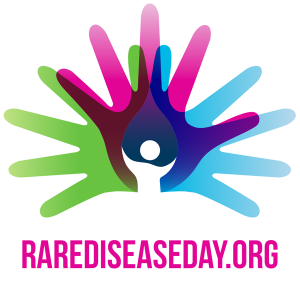
There are between 6000 and 8000 rare diseases, with new ones being discovered on a regular basis and equally more and more already known rare diseases are having their underlying genetic cause identified. Rare diseases individually are rare, affecting at least 1 in 5000 people and many affecting only a handful of individuals, but cumulatively, rare diseases as a group aren’t rare. Approximately 1 in 13 people will have a rare disease at some point in their lifetime, and as more rare diseases are identified, that figure could increase.
I live with a few rare diseases. My primary diagnosis is almost certainly some form of Mitochondrial Disease (“Mito”), likely an ultra-rare or unique condition, to use my consultants’ words, and I also have a secondary rare disease known as Chronic Intestinal Pseudo Obstruction (CIPO). I also have a queried diagnosis of Ehlers-Danlos Syndrome (EDS), opinions either way are divided between my consultants, some say I have EDS and Mitochondrial Disease and my other conditions, others say it’s just the Mitochondrial Disease. So we don’t know, and probably never will unless/until I get a result from the 100,000 Genomes Project who are sequencing my genome – your entire genetic code; the complete instruction manual within your cells – to try and find my underlying genetic fault that has caused my illness and understanding how that has caused everything, the function that gene codes for and how that causes dysfunction in the cells and thus the processes in my body.
Mitochondrial Disease is a condition where the mitochondria within your cells are faulty – mitochondria are the power plans where energy for your cells is manufactured from oxygen and glucose and other substances – and so insufficient energy is produced to power your cells and thus cells don’t have sufficient energy to function and as such they perform their cellular processes poorly or the mitochondria fail completely and the cells die. Primary Mitochondrial Diseases are rare, but mitochondrial dysfunction is linked to many other conditions including Alzheimer’s disease, Parkinson’s disease and even Autism, amongst many others.
Ehlers-Danlos syndromes are a heterogeneous set of 13 different conditions/types of condition with different genetic causes. The most common form is hypermobile EDS, which it is debated whether this is a rare disease or is simply under-diagnosed, forming a spectrum from asymptomatic hypermobility to Hypermobility Spectrum Disorders (HSD) to hypermobile EDS (hEDS). Other forms of EDS are definitely rare diseases, including Vascular EDS (vEDS), Kyphoscoliotic EDS (kEDS) and Arthrochalasia EDS (aEDS), amongst others.
Chronic Intestinal Pseudo Obstruction (CIPO) is a gastrointestinal neuromuscular disorder caused by damage to the nerves of the gastrointestinal tract (gut) and/or wasting of the muscles of the gut. Mine is almost certainly caused by the “Mito” because the nerves in my gut are damaged and the muscles have wasted away, due to the lack of energy to the nerve and the muscle cells. CIPO means the gut cannot move food through the GI tract properly and can lead to severely delayed or absent motility – peristaltic movement needed to move food and fluid through the gut from mouth to bottom – causing a multitude of symptoms including and can affect the e tire gut, causing dysphagia, oesophageal dysmotility, delayed gastric emptying, small intestine dysmotility and colonic inertia/dysmotility. It often means patients cannot eat “normally”, either managing orally with a restricted or liquid diet, or if that is not possible it can leave them requiring enteral tube feeding into the stomach or jejunum (middle of the small bowel), or in severe cases, causing type 3 Intestinal failure and thus requiring Total Parenteral Nutrition (TPN), feeding directly into the bloodstream by via a central line which sit either in the central veins leading to the heart, or just inside the heart itself. They may also require a stoma to remove faecal waste from the body, usually an Ileostomy but sometimes a colostomy. CIPO often affects the bladder, necessitating intermittent or permanent catheterisation to empty the bladder, or various surgical procedures such as a mitrofanoff or Urostomy/Ileal Conduit. Due to CIPO I’ve been on TPN almost 8 years, it saved my life and keeps me alive, I have 4 litres of feed pimped into my Hickman line over 21 hours a day, an additional litre of intravenous fluid over 10 hours and various intravenous medications. I have a venting PEG to drain my stomach of acid and bile, and I have an Ileostomy and a Urostomy/Ileal Conduit.
What does it mean to be rare? It means, in my case, not yet knowing the exact underlying cause of my condition. Knowing what type of disease it is, but not having a definitive diagnosis. It means years of being undiagnosed, and then misdiagnosed. It means few or in my case no treatments for my disease. It means a shortened lifespan due to the complications my rare disease has caused, one that means I should not have reached adulthood, then my next prognosis says I shouldn’t have lived to my 23rd birthday, and now, here I am, 25 years old – and with a lot of living yet to do. It means management and palliative care are my only options, no treatments to alter the condition, but interventions to sustain my life, medications to manage my symptoms, and 24 hour care to keep me alive and at home. It means end of life planning: doing my advance care plan, and living in the knowledge that any day could be my last, as we cannot gage how long I will survive and I’ve already exceeded every prognosis, but also, we know that gaging when I am last year or life or last 6 months of life could be impossible, the likelihood being we won’t know I am dying until I am imminently terminal. It’s having to have conversations with your family about death, dying and your wishes. It means living with death as part of your everyday life. It means living with constant, unbearable pain that even the strongest painkillers are unable to fully control it. It means being hooked up to intravenous drips at least 21 hours every day, a central line giving access directly into your heart, it means intravenous medications injected into your bloodstream, it means all your nutrition being delivered into your bloodstream to bypass your failed gastrointestinal tract, and having the risks that bring with these, including sepsis, liver failure and more. It means weighing up surgeries as to risk vs benefit, knowing that what can be a routine operation for most people could have less than preferable survival odds for you. It means enduring admissions and surgeries and treatments and tests knowing nothing will ever cure your condition, nothing will ever change your condition, and nothing will ever stop your condition from prematurely ending your life. It means constantly readjusting your life as your condition progresses and you deteriorate. It means living life to the fullest, but within the constraints of your illness. It means constantly being in the cycle of grief for at least one issue, one loss of function, or one new complication. It means often not knowing the full answers to why you are the way you are. My rare disease means so many negative things, but it’s not all bad.
However, it is not all negative, there are many positives. My rare disease has given me a lot too. Sure, I am not healthy, I am not the doctor I wanted to be and I will never life the full life I wanted to, but at the same time, I live an incredible life within my limitations. I would not live this life without being ill. Public speaking, written work, advocacy, campaigning, consultancy, advising, sitting on committees, founding patient networks, chairing an advisory group, setting up a charity (still in progress), co-leading and supporting research, working at a strategic level, activism around patient and disability rights, and everything else. I have made a tremendous impact through my work, which only came about because I am ill. I am often told by people they think I’ve probably made more of a difference as a patient doing the work I am doing, than I would have as a doctor. I have received some awards, most notably my MBE for services to young people with disabilities, and my honorary masters degree from the Open University, plus being names at one of the 100 most influential disabled people in Britain in the Disability Power 100 List 2018, and more recently being invited to become a fellow of the RSA (Royal Society for the encouragement of Arts, Manufactures and Commerce), being able to add the post-nominal letters FRSA to my existing post nominals, MBE and MUniv, to make my full name with titles: Lucy Watts MBE, MUniv, FRSA. I would not have met all the incredible people I have met, friends I’ve made, connections I’ve gained and collaborated with, people who’ve been part of my life and brought something to my life, no matter how big or small. I would not have all the amazing experiences I have had without my illness, nor been to all the places I’ve been to, including Buckingham Palace to get my MBE, going to the House of Commons and House of Lords numerous times, the Cabinet Office, NHS England, Department of Health, Middle Temple, Westminster Abbey, The Barbican (to receive my Honorary Degree), and so many more places. I would not know the true value of life – or of love. I would not have the same appreciation I have for the little things – and the little things, when you look back, turn out to be big things. I wouldn’t be “Me” without my condition – it’s made me who I am. It’s made me more driven and determined, more confident and helped me to believe in myself and my abilities, and enabled me to live a life I am proud of.
My rare disease has taught me a lot about myself and about life. It’s changed my perspective and made me a better person.
Being rare isn’t always easy, but it isn’t all bad. Please support Rare Disease Day 2019, Thursday 28th February.
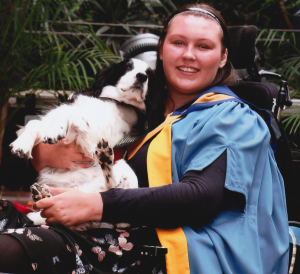

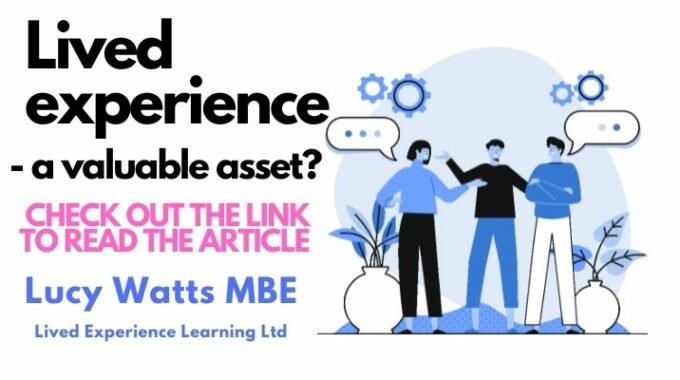
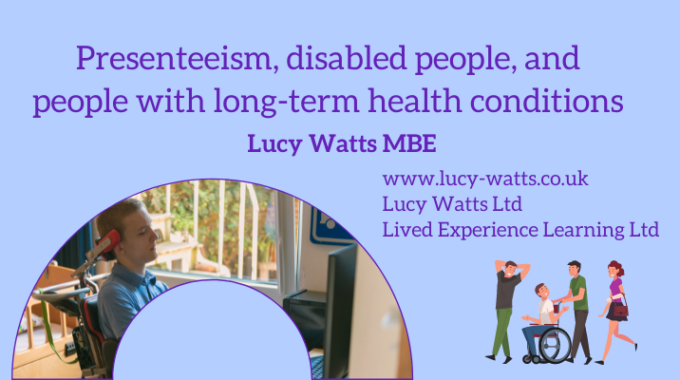
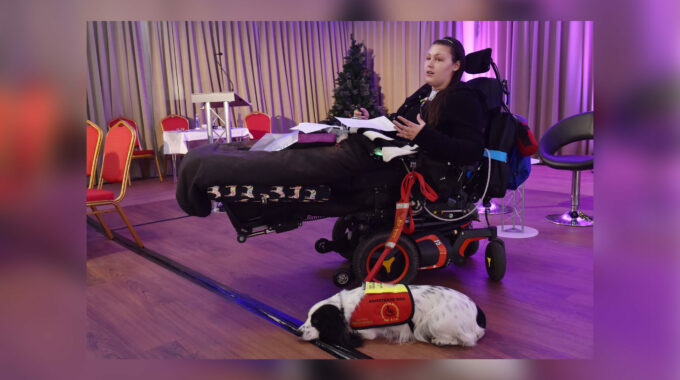
This Post Has 0 Comments